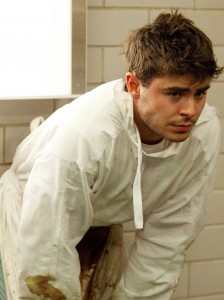In the vein of Pearl Harbor, the Oklahoma City Bombing and 9/11, another day that will always live in infamy is Nov. 22, 1963. It is the day that shots were fired from Lee Harvey Oswald’s Carcano Rifle, killing President John F. Kennedy’s in Dallas, marking the fourth successful presidential assassination in the United States. Any casual disciple of American history is aware of the major players in this event that has spewed more conspiracy theories than a hobo wearing a tinfoil hat.

Based on Vincent Bugliosi’s book “Four Days in November,” Peter Landesman takes a look at the lesser-known supporting characters on that dark day, and the three that followed, in his new movie “Parkland,” which was released Oct. 4. Despite boasting a Tom Hanks producing credit and an ensemble cast, the film never quite breaks free of its made-for-TV vibe due to underdeveloped characters, squandered talent and superficial treatment of the subject matter. With the movie riding on the coattails of greater American historical dramas steeped in national tragedy and flaunting liberal use of a shaky camera, I’d dub “Parkland” as this fall’s discount “Argo.”
Shortcomings aside, Landesman’s debut as a director and writer starts with an emotional smack to the face, as women’s clothing manufacturer Abraham Zapruder (Paul Giamatti) records the now iconic and only film of the president being shot with his Bell & Howell home-movie camera. While people panic in the streets and he screams “Oh my God, they killed him!” we get two things: a small inkling of how tragic that day in Dealey Plaza was, and Giamatti’s only shining moment before his presence all but disappears as he copes with what he has witnessed.
The next noteworthy (and bloody) sequence follows soon after, when Kennedy is rushed to Parkland Memorial Hospital (the film’s namesake) where an operating room full of frantic actors (Zac Efron, Marcia Gay Hayden and Colin Hanks) tries to resuscitate him. Efron stands out in his role as Dr. James Carrico, desperately using CPR on the president’s lifeless body after all else has failed. The tear-inducing shot of Jackie Kennedy sobbing over her husband reminded me of a similar scene from August’s blockbuster “The Butler.”
Unfortunately, “Parkland” becomes pretty boring and quiet after this, a real shame after its high-octane opening. The viewer is treated to stock footage of devastated Americans and famous newscasters like Walter Cronkite brooding over the assassination, stock footage that may conjure memories of the opening minutes to Spielberg’s “Munich.” All the while, James Newton Howard’s poignant, ominous and horn-filled score plays in the background, mirroring both his beautiful themes on Peter Jackson’s “King Kong” and John Williams’ utterly American soundtrack for “Saving Private Ryan.”
Another subplot involves James P. Hosty, the FBI agent assigned to investigate Lee Harvey Oswald prior to the shooting, portrayed by Ron Livingston (“Office Space”) in a role that he makes so mundane that it could have gone to any fortysomething schmo out there with a working set of vocal cords. Maybe we would care more about the fact that there may have been a chance to stop Oswald if Livingston was more of a colorful character.
The last two subplots involve the Secret Service (led by an unimpressive Billy Bob Thornton) and Oswald’s family, the more interesting of the pair. Perhaps the most complex character of the entire film is James Badge Dale (“The Departed,” “The Lone Ranger”) as Lee’s brother Robert, a man who despises his sibling’s actions yet stands by him at the same time; we can never truly get a complete reading on him.
Hot off last year’s “Silver Linings Playbook,” Jacki Weaver plays their mother, Marguerite, who insisted that Lee was an American hero and deserved to be buried with Kennedy at Arlington National Cemetery. The role is as one-dimensional as you can get, one that makes her as petulant and annoying as Lois Smith was as George Reeves’ mother in “Hollywoodland.”
All in all, Landesman’s biggest problem is his eagerness to play all his cards at once in a matter of 94 minutes. In this regard, he fails to reel us in and keep our attention, as the movie keeps jumping from one event to the next without giving us a chance to reflect. While not treading on the same conspiracy ground that Oliver Stone did in “JFK,” I might have been more enthralled if it did. A look at the Warren Commission that investigated the assassination may not have hurt either, but it seems that the matter of Kennedy’s death has been too overused in popular culture (from movies to books to television miniseries) for us to really care anymore. It might be time for Hollywood to start pursuing lesser-known and more obscure historical events like Ben Affleck did with his Oscar-winning success last year. Even Ron Howard was able to create a gripping piece of cinema out of something as humdrum as a presidential interview with “Frost/Nixon.” In a sense, historical dramas are a lot like senior citizens. If you treat them with respect, they might just tell you one hell of a story.


